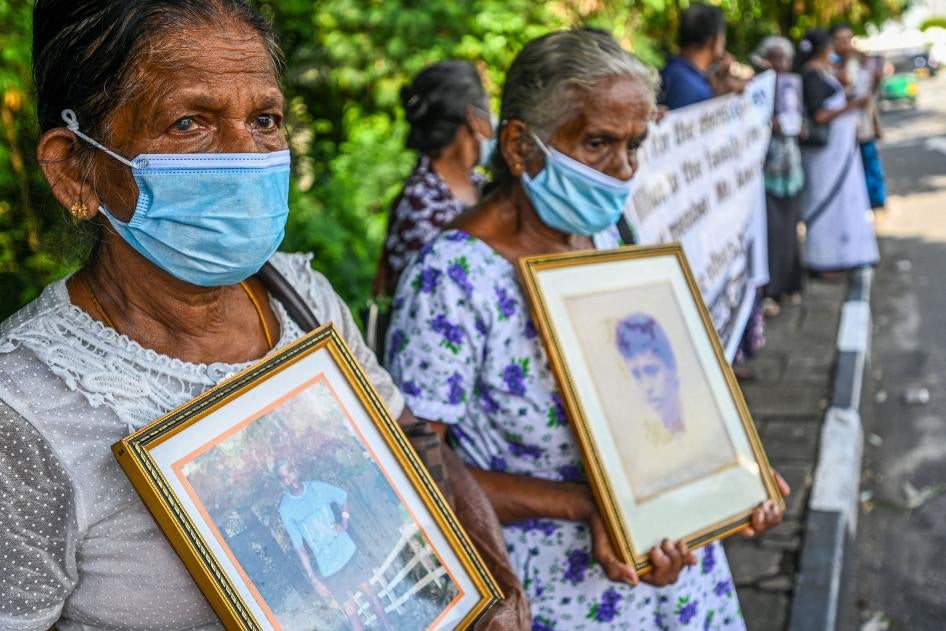Lakshmi remembers when the guns finally fell silent in Sri Lanka, in May 2009.
She had been sheltering in a shallow hole in the sand – what passed for a “bunker” for the hundreds of thousands of Tamil civilians huddled on the beach. For weeks they had endured continual bombardment in an area the military had declared a “no fire zone”.
“Many people were struggling for their lives,” she told us in a recent meeting. “We were in a bunker and the army came with weapons and took us outside. We saw blood flowing and body parts. We will never forget.”
The 26-year war between the separatist Liberation Tigers of Tamil Eelam and the Sri Lankan government finally ended on May 18, 2009. Hundreds of LTTE fighters, including top leaders, were allegedly killed after surrendering, among the many war crimes that both sides committed in the final phase of the conflict.
Photographs and mobile phone videos, seemingly made as keepsakes by government soldiers, show summary executions of prisoners whose hands are tied behind their back. Heaps of corpses of women fighters were photographed naked; apparently murdered after being raped.
Lakshmi, who is still too scared to let us use her real name, was taken to an internment camp, where about 250,000 civilians were separated from suspected combatants. She has since spent years searching for her then 21-year-old son, who surrendered to the Sri Lankan army and was never seen again.
There has been no accountability for atrocities by government forces, including torture, rape, extrajudicial killings, enforced disappearances, and indiscriminate attacks. The LTTE leadership mostly either died in battle or were executed, and so can never face justice for their summary killings, bombings of civilians, abductions, and the use of child soldiers.
Over 100,000 people died in the decades of conflict. A study by a United Nations panel of experts found that up to 40,000 civilians were killed in the final months of fighting. It found that in that period, “virtually every hospital in the Vanni [region], whether permanent or makeshift, was hit by artillery.”
The government used deliberately low estimates of civilians in the conflict zone to restrict humanitarian supplies. In a well-documented instance on April 8, 2009, women and children in line to get milk powder were killed by shelling. The LTTE used civilians under their control as human shields, shooting at families who tried to escape, and restricted aid deliveries.
The unaddressed legacy of the war has bequeathed to Sri Lanka practices of abuse, impunity and misgovernance that still blight the country, and directly contribute to the economic crisis that afflicts it now.
Successive governments have appointed a series of commissions ostensibly to investigate reported abuses, while in practice blocking investigations and shielding the abusers. The fate of the thousands of “disappeared” has never been revealed, while the mothers of the disappeared – who, like Laksmi, have campaigned continuously to learn the truth – face surveillance, harassment and arrest from the authorities.
Meanwhile senior figures implicated in atrocities have been promoted. The current defense secretary, retired General Kamal Gunaratne, was one of the top commanders during the final offensive. He is barred from travelling to the United States due to allegations of serious abuses.
In Sri Lanka’s predominantly Tamil north and east, where most of the fighting took place, the highways are still dotted with army camps and checkpoints. The authorities violently suppress protests, and arrest people under draconian anti-terrorist legislation for social media posts or for commemorating Tamil victims of the war.
Government agencies seize land belonging to Tamil and Muslim communities on a variety of pretexts, and then settle communities from the Sinhala Buddhist majority, and build Buddhist monuments on the sites of Hindu temples.
When the Sri Lankan government defaulted on its foreign debt in 2022, setting off a severe economic crisis, it revealed how far institutions of government were dominated by those implicated in war crimes. The president at the time, Gotabaya Rajapaksa, had been defense secretary during the war, while the prime minister, his brother Mahinda, had been president. The silencing of human rights defenders over corruption and misgovernance.
One of the few avenues available to address this dreadful legacy is the UN Human Rights Council, which has created a UN office to collect evidence of atrocities committed in Sri Lanka for use in future trials abroad. Governments around the world should engage with the office to prosecute cases at home for war crimes committed in Sri Lanka. And they need to support renewal of this critical office in September.









